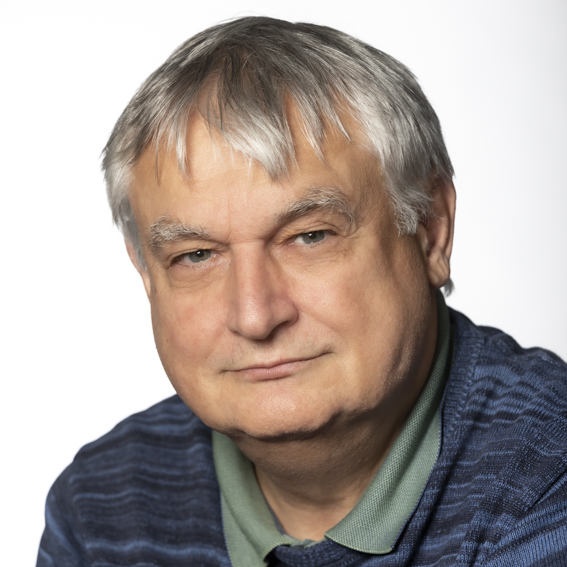Drug Targets
The development of pharmacologically active agents requires not only the identification of substances that act specifically against a particular disease, but also their mechanistic characterization. The latter allows for a better understanding of the molecular causes of diseases and provides information on possible side effects of pharmacological agents. Mechanistic insights can then be used to develop novel substances with greater efficacy and fewer side effects.
The BioHealth research area "Drug Targets" focuses on screening - i.e. the systematic search for natural and semisynthetic agents - and research into the cellular signaling pathways, in which such agents intervene. The latter also includes the search for so-called "drug targets", i.e. those molecular structures targeted by active substances to exert their effect. In this context, potential new drugs and mechanisms of action against various diseases, in particular, cancer, neurodegenerative diseases such as Alzheimer's or Parkinson's, as well as bacterial and fungal infectious diseases are being investigated. In addition to animal models, cellular model systems are used, which are designed to resemble in vivo conditions as close as possible (e.g. 3-dimensional tumor models, organoids). Simulations of the blood-brain barrier are run to test, among other things, the pharmacological availability of active substances in the brain.
This BioHealth research area also investigates the production of existing and prototype active agents by means of biocatalysis. With the aid of biodegradable enzymes, this shall facilitate a more efficient, environmentally friendly and cost-effective availability of pharmacological agents.
Currently, we are researching the following topics:
- The function of oxidized phospholipids, in driving inflammatory processes.
- Development of inhibitors of "adipose triglyceride lipase" (ATGL) for the treatment of fatty liver disease and type 2 diabetes.
- Inhibition of lipases from human pathogenic bacteria.
- Development of inhibitors of ribosome biogenesis for tumor therapy.
- Development of new biocatalysts.
- Shortened production routes of medically used natural products and active pharmaceutical ingredients (APIs).
- Establishment of three-dimensional (3D) tumor models and simulations of the blood-brain barrier.
- Antitumor mechanisms of action of novel peptides derived from human immune defenses.
- Investigation of drug interactions with membrane proteins that either represent drug targets or mediate drug resistance.
- Development of novel drug delivery systems in the form of nanodiscs.
- Development of eukaryotic and prokaryotic membrane models and design and characterization of membrane-active agents, e.g. antimicrobial peptides.
- Polyphenols as natural agents against age-associated diseases.
- Antifungal activity of known and novel flavonoids, a specific group of secondary plant metabolites.
Drug Targets Team

Em.Univ.-Prof. Univ.-Prof. Dr.rer.nat. Dr.h.c. Rudolf Bauer
+43 316 380 - 8700
Institut für Pharmazeutische Wissenschaften
ORCID: 0000-0002-0057-5547
https://pharmazie.uni-graz.at/de/institut/pharmakognosie/bauer-rudolf-univ.-prof.-dr.rer.nat./

Ao.Univ.-Prof. Mag. Dr. Helmut Bergler
+43 316 380 - 5629
Institut für Molekulare Biowissenschaften
ORCID: 0000-0002-7724-309X
https://molekularbiologie.uni-graz.at/de/arbeitsgruppen-bergler-pertschy/

Assoz. Prof. Dr.rer.nat. Didac Carmona-Gutierrez
+43 316 380 - 1510
Doktoratsschule Molekularbiologie und Biochemie
ORCID: 0000-0001-7548-7771
www.uni-graz.at/madeo

Univ.-Prof. Dr.rer.nat. Hanna Engelke
+43 316 380 - 5370
Institut für Pharmazeutische Wissenschaften
ORCID: 0000-0001-9529-9436
https://pharmazie.uni-graz.at/en/research/pharmaceutical-chemistry/pharmaceutical-cell-biology/

Mag. Dr.rer.nat. Christian Gruber
+43 316 380 - 5466
Institut für Molekulare Biowissenschaften
ORCID: 0000-0003-0214-449X
https://molekularbiologie.uni-graz.at/en/strukturbiologie/

Univ.-Prof. Mag. Dr.rer.nat. Karl Gruber
+43 316 380 - 5417
Institut für Molekulare Biowissenschaften
ORCID: 0000-0002-3485-9740
https://molekularbiologie.uni-graz.at/en/strukturbiologie/

Assoz. Prof. Priv.-Doz. Dr.rer.nat. Melanie Hall

Dipl.-Ing. Dr.techn. BSc Bettina Halwachs-Wenzl

Dr.rer.nat. BSc MSc. Katharina Kainz

Univ.-Prof. Dr.rer.nat. Sandro Manuel Keller
+43 316 380 - 4987
Institut für Molekulare Biowissenschaften
ORCID: 0000-0001-5469-8772
https://biophysics.uni-graz.at/en/sandro-keller-lab/

Ao.Univ.-Prof.i.R. Mag. Dr.rer.nat. Walter Keller

Univ.-Prof. Dr. Andreas Koeberle
+43 316 380 - 8630
Institut für Pharmazeutische Wissenschaften
ORCID: 0000-0001-6269-5088
https://pharmazie.uni-graz.at/en/research/pharmacognosy/

Ao.Univ.-Prof. Dr.phil. Guenther Koraimann
+43 316 380 - 5626
Institut für Molekulare Biowissenschaften
ORCID: 0000-0002-8937-3027
http://homepage.uni-graz.at/de/guenther.koraimann/

Univ.-Prof. Dipl.-Ing. Dr.techn. Wolfgang Kroutil

Univ.-Prof. Dr.rer.nat. Frank Madeo

Priv.-Doz. Mag. Dr.rer.nat. Nermina Malanovic

O.Univ.-Prof. Dr.phil. Bernhard-Michael Mayer

Assoz. Prof. Mag. Dr.rer.nat. Monika Oberer
+43 316 380 - 5431
Doktoratsschule Molekularbiologie und Biochemie
ORCID: 0000-0003-2525-9513
https://molekularbiologie.uni-graz.at/en/strukturbiologie/

PhD Isabel Oroz-Guinea

Assoz. Prof. Dipl.-Ing. Dr.techn. Georg Pabst
+43 316 380 - 4989
Doktoratsschule Molekularbiologie und Biochemie
ORCID: 0000-0003-1967-1536
https://membrane-biophysics.uni-graz.at/en/

Assoz. Prof. Mag. Dr. MSc. Tea Pavkov-Keller
+43 316 380 - 5483
Institut für Molekulare Biowissenschaften
ORCID: 0000-0001-7871-6680
https://molekularbiologie.uni-graz.at/de/unsere-forschung/strukturbiologie

Priv.-Doz. Mag.pharm. Dr.rer.nat. Eva-Maria Pferschy-Wenzig

Dipl.-Ing. Dr.rer.nat. Sabrina Riedl

Dr.rer.nat. Georg Steinkellner

Univ.-Prof. Dipl.-Ing. Dr.rer.nat. Ulrich Stelzl
+43 316 380 - 5397
Institut für Pharmazeutische Wissenschaften
ORCID: 0000-0003-2500-3585
https://pharmazie.uni-graz.at/de/unsere-forschung/pharmazeutische-chemie/

Assoz. Prof. Dipl.-Ing. Dr.techn. Dagmar Zweytick
+43 316 380 - 4988
Doktoratsschule Molekularbiologie und Biochemie
ORCID: 0000-0002-4766-7713
https://cancer-biophysics.uni-graz.at/